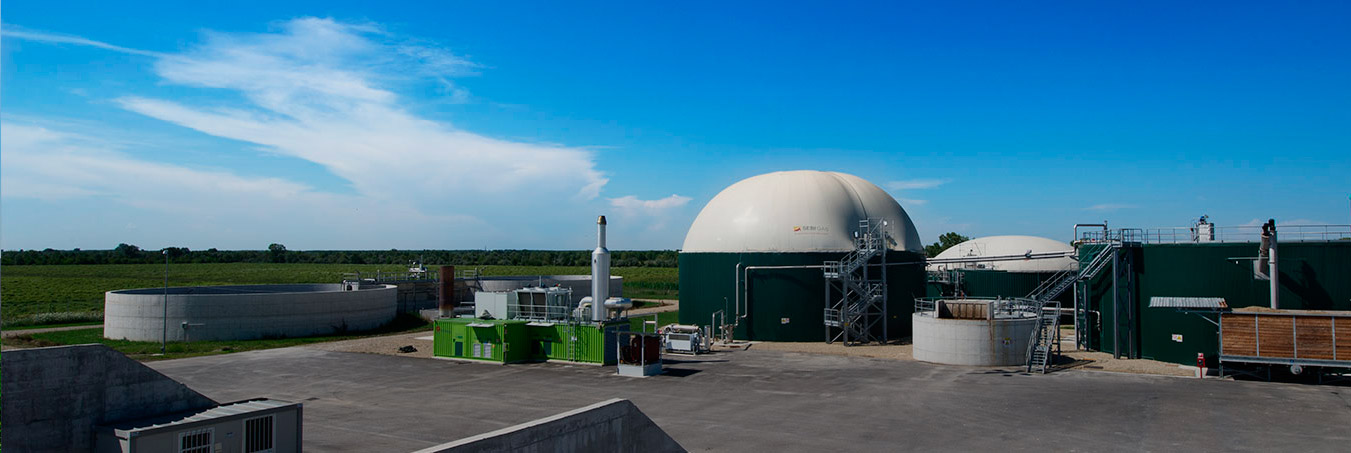
Biogas
Biogas is an alternative source for the production of renewable energy. It is naturally obtained from the degrading of various organic substances through the biological processes of anaerobic digestion (fermentation in the absence of oxygen).
The biogas produced contains a elevated concentration of methane (CH4) and can therefore be converted to electricity and heat through cogeneration systems, or it can be purified in order to obtain biomethane through purification systems which are called upgrading.
The digestion, the plant’s outlet material, can be used in fields as organic fertilizer because of its high fertilizing properties.

Producing biogas means:
BIOGAS: ecological source of energy
Producing energy through anaerobic digestion and cogeneration is significantly more efficient (about 30% more) than producing energy from fossil fuels. The power grid feed-in also helps reduce reliance on local energy imports.
In addition, the production of electric and thermal energy from a biogas plant is a carbon neutral technology; the methane is completely burned while the emitted CO2 is the same as that previously absorbed by the biomass during the natural carbon cycle.
Finally, the environmental benefits of a biogas plant are also manifested by reducing or even eliminating greenhouse gas emissions, as well as solving the waste problem, which in a biogas plant is transformed into energy resources.
With your biogas plant, your business actively contributes to reducing pollutant emissions on the planet.
Interested?
Get in touch with us now! We are waiting for your contact to be able to answer all your doubts about the production of biogas from organic waste.

